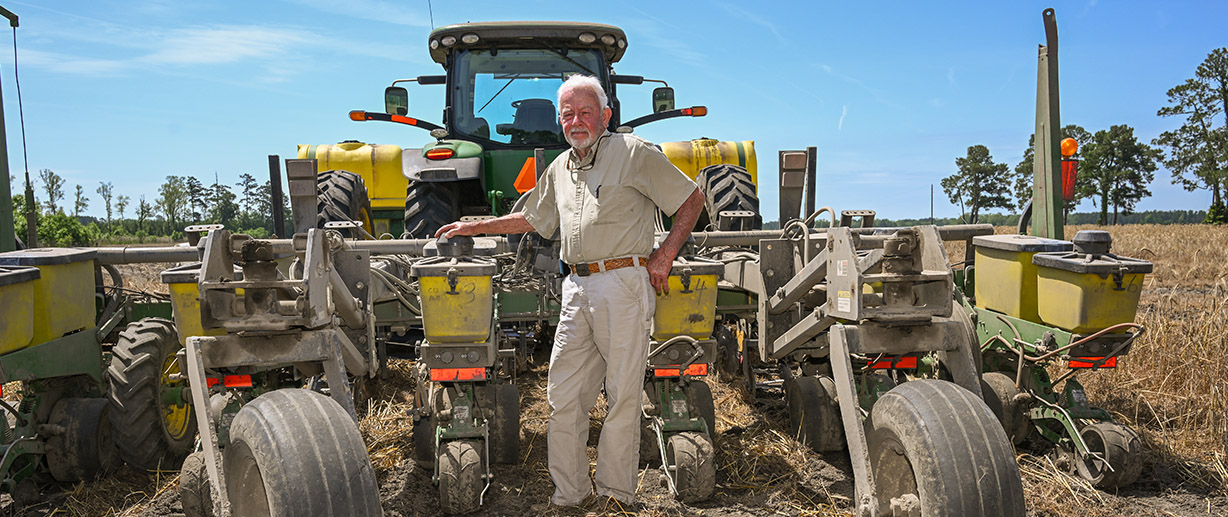By Jo Ann Mitchell Brasington ’89
Jim Traywick ’65 can see a country mile in either direction from his kitchen table on Frog Level Farm near Cope, S.C. There’s no place he’d rather be.
He didn’t have to attend Wofford to become a farmer, but his father, Thomas Traywick ’29, who served on the Wofford College Board of Trustees from 1955 through 1966, didn’t give him much choice.
“I grew up on a farm and had 300 laying hens by the time I was 12 years old,” says Jim, who smiles when he talks about feeding calves and hogs, planting seeds and harvesting cotton. “I didn’t want to go to basketball practice because I thought I’d miss the chance to drive a tractor.”
At Wofford, Jim followed his brother Tom ’63 and preceded his brother Jody ’67. They all worked the farm at some point after graduation, but Jim was really the only farmer in the bunch.
“I guess I’ve been successful enough,” says Jim, spoken like a true farmer. “We’ve had some good years of late.”
Jim and his son, Deaver, a Davidson College graduate, plant cotton and corn, and sometimes peanuts. Those cash crops, planted on the farm’s 1,200 acres, yield most of the farm’s income. About five years ago, the Traywicks also started being paid for planting cover crops such as tillage radishes, vetch, black oats and clover. The environmental benefits of these cover crops include healthier soil, erosion control, weed suppression and carbon sequestration.
“If we keep something green growing all the time, then we can make a difference for the environment,” says Jim. “Any green growing plant or tree sequesters carbon, and although the income is miniscule at this point, we’re getting paid a little bit for conservation, something we’ve been committed to in one way or another for 50 years.”
More and more farmers are getting paid to practice low- or no-till techniques and plant cover crops that keep carbon in the soil instead of released into the air. The cover crops also limit the need for synthetic fertilizers.
The way Jim explains it, an airplane flying from Charleston to Charlotte emits carbon dioxide. The cover crops below act as straws, sucking carbon emissions from the air into the ground, which enriches the soil and eliminates greenhouse gases. Airlines then buy carbon credits from a collective of farmers practicing sustainable agriculture. The Traywicks are paid based on the carbon credits they store in the soil, and one carbon credit equals a metric ton of carbon dioxide gas (2,205 pounds) that is not emitted into the atmosphere.
“In May I have some sleepless nights wondering if the cotton seed will come up through the cover,” says Jim. “The cover crops don’t really boost yield. It’s more about being proud that you’re doing something the best way.”
Jim says he’s old enough to have quit farming a long time ago, and he has turned farm management over to Deaver, who commutes regularly from Asheville, N.C., to Cope. “He’s a great guy to work for — smart as the devil, a treasure and a pleasure.”
Farming in 2023 means operating multiple computers inside the cab of an air-conditioned tractor. It means sharing a completely automated cotton picker and baler with a neighboring farmer. It means walking out in the fields to see why the irrigation system quit moving during the night and considering a proposal to lease 400 acres for solar panels.
And Jim Traywick still does it all.
